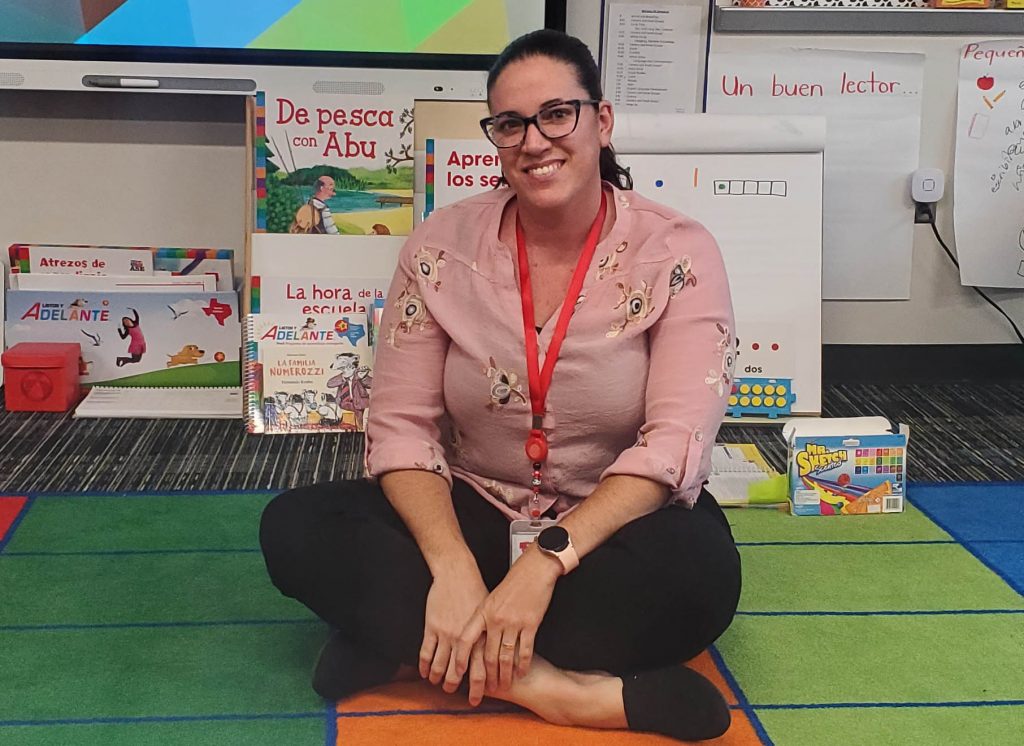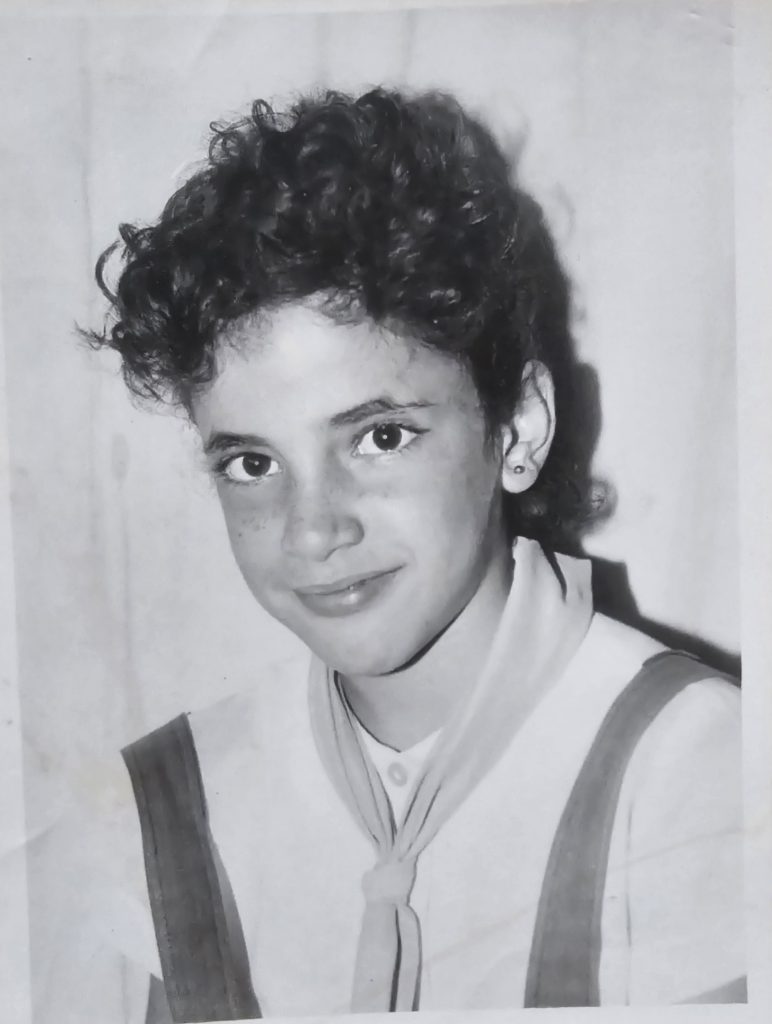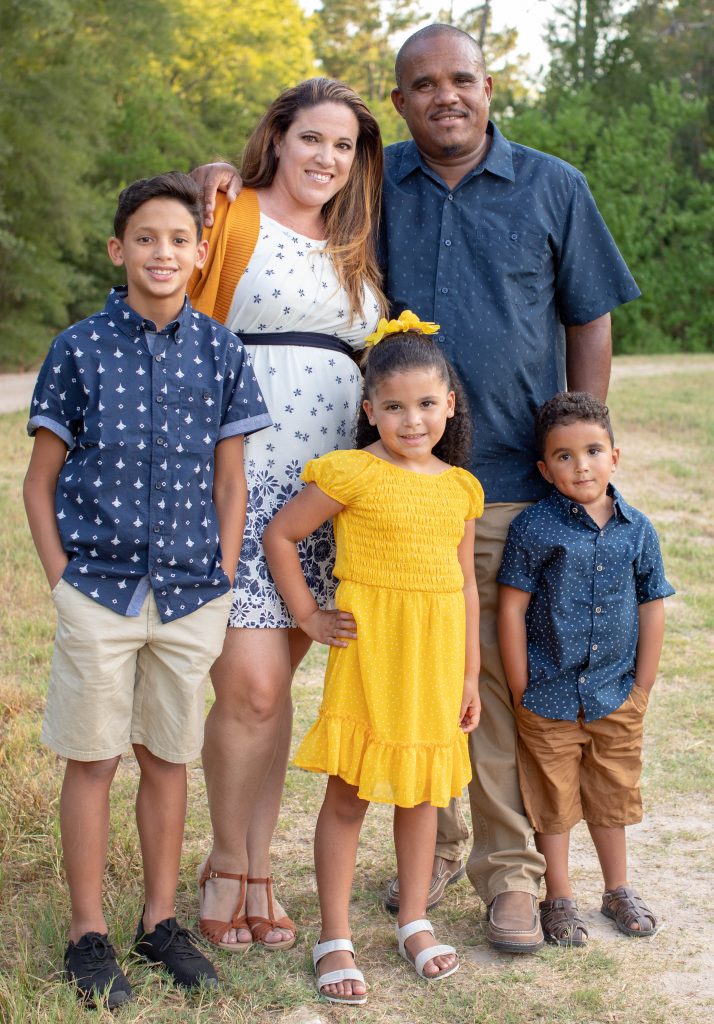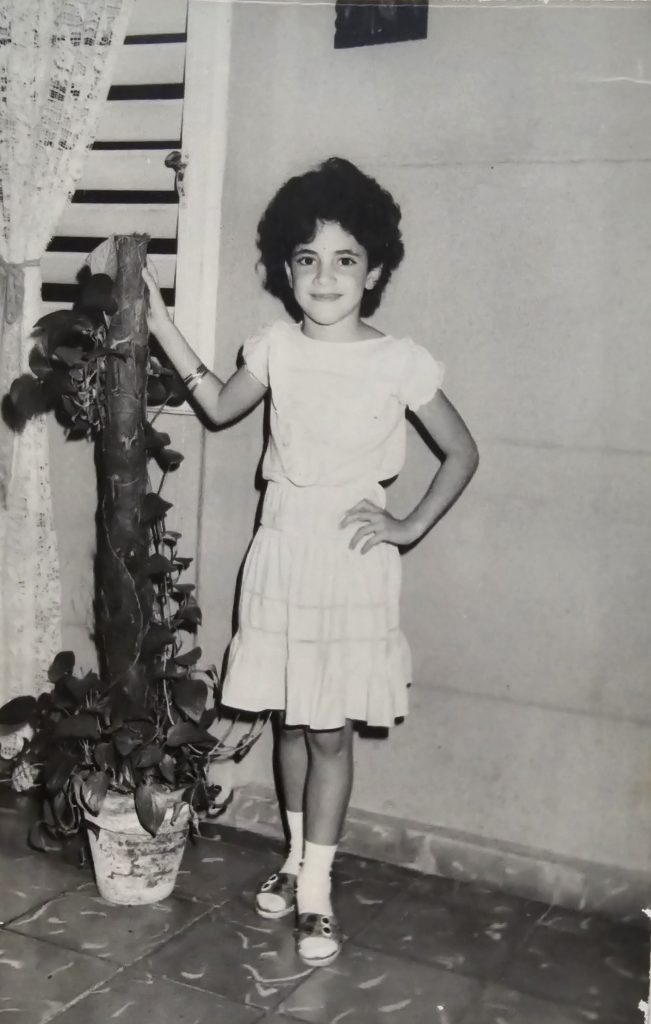
Before fleeing Cuba, before her journey across eight countries to the U.S.-Mexico border, before her second life as a classroom aide in Texas and before her online courses at Grand Canyon University launched May 23, Eyleen Ochoa was just a girl who wanted to write.
On the first day of second grade, she was issued a single gray notebook made of recycled newspaper with no lines and had to squeeze words between math problems and erase mistakes with a wet finger. At night, she cut words out of newspaper at home and used her mother’s homemade baking soda glue to paste them together and make sentences.
That wasn’t the only challenge. Ochoa couldn’t write what she wanted.

“What are you going to write? Whatever you feel, whatever you are thinking at the moment, whatever makes you sad, whatever makes you angry, whatever makes you to have hope?” Ochoa asked.
In communist Cuba, she wasn’t free to write, fearing she would mysteriously disappear, she said. What she was left with was a gray notebook and textbooks filled with government propaganda. “They cut your wings. You are a child.”
Years later, Ochoa would write this for a college teacher in Texas in her essay “Freedom to Write:” “Freedom was only in your imagination or written in the darkest nights in your room, but only meant to be ripped up the next day and never talked about. To keep a diary would have been a matter of life or death.”
By age 12 she sat her father down to tell him this, Ochoa recalled in an interview: “You know I will never give the blessing of having your grandchildren in this country. I will have my babies and do my life outside this country. You have to be prepared for that.
“I was preparing myself for my dream, and my dream was not there.”
Her dream of freedom took another decade. Soon after she finished a bachelor’s degree in Havana, Cuba, at the University of Physical Culture and Sports Sciences to become a physical culture teacher in 2010, she met a tourist couple from Ecuador. She told them of the scarcity of food, when one plate of rice and a fried egg was the only meal, and how she washed her teeth with salt and collected rain to wash clothes. As a new teacher, she made $5 a month. A new pair of shoes was $10.
They offered to pay her way to Ecuador for a visit. Many travel restrictions were still in place then, but they could buy her a roundtrip ticket. Her parents knew that she would never get on the return flight.
Ochoa said she became a refugee in Ecuador, but within two months, was working in a hardware store, then began teaching swimming lessons. She met Guzman Ochoa, pastor of small ministry in Texas, doing mission work in Ecuador. They soon married and had a child, Christopher.
Her husband traveled back and forth between countries, but they dreamed of being united in the U.S., which would require her to go back to Cuba and try for entry from there, Ochoa said.
So with Christopher, then 5, at her side and each carrying a backpack, with every pocket and sock or crevice stuffed with $3,000 the couple had saved, she set out to travel through eight countries to get to the U.S. border near Brownsville, Texas. She told her son it was a great adventure.
“We were just walking for our dreams. People would say, 'You are crazy.' 'No, I am not crazy. God is with me. If He is with me, nothing is against me,'” she said.
On foot, bus, horse, boat and plane, they hopped from one country to the next.
Ochoa and Christopher took a four-seat plane from Colombia to Panama, where they walked three days through a jungle. Through Costa Rica, Nicaragua, Honduras, Guatemala on foot or horse or bus, they reached Mexico, only to be tossed in what she called “immigration prison.”
They only let her out after three days, she said, with papers that required her to leave the country within 30 days. “As soon as I got those papers, I got a bus ticket,” she said.
“I did it in 23 days. In August 2015, I just knocked on the door at the border and showed them my Cuban passport,” she said, knowing that the so-called “wet foot, dry foot” U.S. policy allowed migrants fleeing via land or sea from Cuba without a visa to stay in the United States, a policy rescinded two years later.
She met her husband at the border, and they wept. He was afraid she would never make it. She told him that God was with them, that the worse thing was to stay in Cuba and not fight for her dreams.
“That determination to be free was my point of determination of everything I did. So the worst was never trying. If I don’t do it, I will think I failed all my life because I didn’t try it,” she said. “I did it with God guiding me in every single step. I had my freedom.”

She settled in Cleveland, Texas, with her husband, and the couple had two more children, Emily, 7, and Jonathan, 5, and eventually began work as a paraprofessional bilingual aide at Northside Elementary School.
Ochoa quickly connected with the students, some who don’t come from functional homes and needed love and someone “who will protect them and be very excited with their goals and sad if something happens to them and give them a hug if they need one. It fills my heart so much,” she said.
“At the same time, I am teaching them to start their school life in a good way, showing and teaching them how to treat others with respect, how to not hurt a friend, how to love each other no matter if we are different colors, different sizes and no matter if they come from different countries.”

Ochoa wanted to become a classroom teacher but found it difficult to prove her prior education – until she met GCU university development counselor Erica Dudek at her school. Through GCU’s National Center for Teacher Preparation’s Initial Teacher Licensure Scholarship, Ochoa could get financial assistance to seek her master’s degree in elementary education after an evaluation of her Cuban education.
“Often credentials from communist countries are not accepted. GCU does an excellent job of evaluating transcripts," said Dudek, and helps pay for student costs from evaluation agencies.
After the evaluation of her transcript, she learned she could begin graduate school.
“She was floored and started crying. It was very emotional. It was very touching,” said Dudek, who will join Ochoa and a handful of other paraprofessionals from the Houston area for a tour of GCU’s campus June 8. “To be told your education doesn’t mean anything and then to find out she gets credit for it.”
It’s one way GCU is helping address the national teacher shortage, helping school employees gain the education they need to become classroom teachers. Ochoa is already applying for a teacher job for next school year while beginning her graduate program online at GCU.
“I was an immigrant one day with no papers. Dreams are possible to come true when you work hard for them. If you have a dream you can fight for it,” she said of learning English by taking classes at Lone Star College after being confused by what everyone was saying while in her first job at Walmart.
“In U.S., I learned what freedom means. Every American is so blessed. Not everybody has your blessings, your opportunities,” she said.
Such as going to school and having paper to write on and a pencil with an eraser.
“I am free not to just write, I am free to speak for others. I’m free to pray for others, I’m free to tell my children and all my students about what freedom means,” said Ochoa, 37.
It means this to her:
“We can speak, we can write. You can be yourself, you can show the world how you really are, how you really feel. You can express it with your faith. You can breathe freely. You can look at the sky and say, 'Oh my gosh, how many cannot feel this?'”
Grand Canyon University senior writer Mike Kilen can be reached at [email protected]
***
Related content:



































































